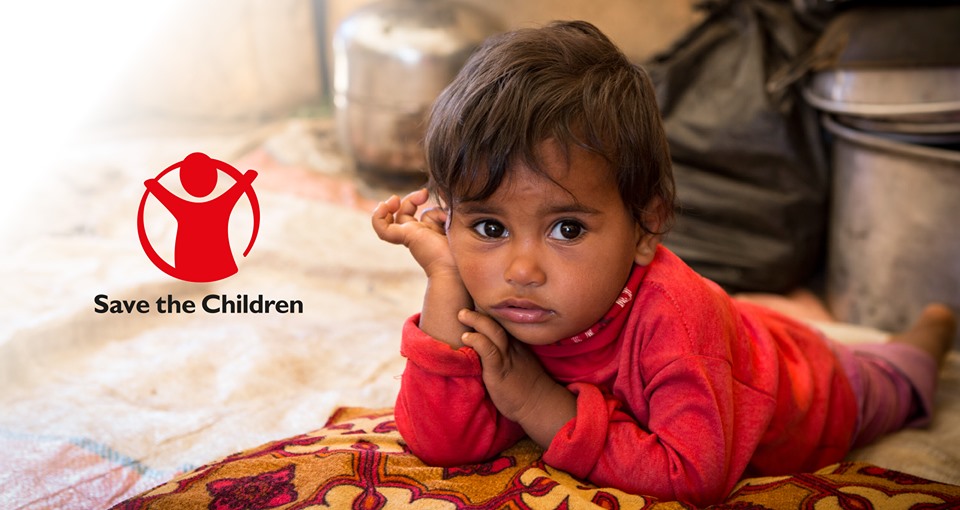COVID-19
Over seven million children at risk of hunger – Afghanistan

Save the Children, in a press report on May 01, 2020, revealed that over 7 million children in Afghanistan were at risk of hunger because of the sky rising prices of food amid the Coronavirus lockdown.
It says, “At a time when Afghan children need adequate daily nutrition to help strengthen their immune systems to fight the impact of the Coronavirus pandemic, the price of basic foods is rising under the lockdown, making it harder for families to feed themselves.”
According to the report, a third of the population, including 7.3 million children, will face food shortages in April and May due to the current pandemic.
It refers to a survey of the World Food Program, which indicates that only in the past month, the price of wheat flour and cooking oil in Afghanistan’s main city markets have increased by up to 23 percent as supply is unable to meet demand, while the cost of rice, sugar, and pulses have increased by between 7 and 12 percent.
“While food prices are increasing, the financial ability of daily wage laborers to buy food is decreasing, as casual work dries up because of nationwide restrictions. A large portion of the Afghan workforce relies on the informal sector, with no safety nets when work is scarce,” the report states.
This comes as even before the global COVID-19 crisis, reportedly, the total number of children who needed some form of humanitarian support this year stood at 5.26 million, making war-torn Afghanistan one of the most dangerous places in the world to be a child, it underlines.
According to the report, the most recent nutrition surveys in Afghanistan show that an estimated two million children under five will suffer from the most life-threatening form of extreme hunger annually.
“The effects of the lockdown coupled with one of the weakest health systems in the world – Afghanistan has just 0.3 doctors per 1,000 people – means malnourished and sick children are much less likely to get the life-saving treatment they need to survive,” says the report.
Save the Children, narrates the story of a 13-year-old Mustafa in Sar-e-Pul province of Afghanistan with his four siblings and mother.
“Mustafa goes to school and works in a local food shop to supplement the family income. But since the lockdown, he is at home, unable to neither go to school nor earn any money to help put food on the table.”
Mustafa tells Save the Children, “We don’t have any food at home. From three meals a day we are down to two and sometimes just one. My mother is trying to find food for us, she is weaving carpets to sell but everywhere is closed right now. She can only make us tea with dry bread. My other siblings sometimes ask for good food, but my mother can’t afford to feed us. It’s hard to be alive.”
Timothy Bishop, Save the Children’s Country Director in Afghanistan, said, “We are deeply concerned that this pandemic will lead to a perfect storm of hunger, disease, and death in Afghanistan unless the world takes action now to ensure vulnerable children and their families have enough to eat, especially those in remote areas and the urban poor.”
“The uncertainty surrounding COVID-19 means many families are stressed about putting food on the table, with no clear indication of how long the current crisis will go on.”
Meanwhile, children who miss out on their daily nutritional needs are at a far greater risk of getting sick, he said adding that in extreme cases the lack of food may even affect a child’s physical and mental development, with devastating consequences for the rest of their lives.
Bishop further said, “For many Afghans, the biggest impact of the pandemic will not be the virus itself, but the hunger caused by lockdown measures and a breakdown in supply lines. We are facing the very real risk that children could die from starvation.”
He underlines that what is needed is for the international community to urgently fly in food supplies to be distributed to some of the most vulnerable communities in the country, including children, pregnant women, the elderly, malnourished, and those who are sick.
Bishop calls on the government to provide food amid the lockdown, noting “We also urge the Afghan government to facilitate the rapid distribution of food, despite the nationwide lockdown.”
He concludes his statement emphasizing, “Afghan children have suffered enough. Most have known nothing but conflict in their lives. We cannot allow COVID-19 to further rob them of their futures.”
COVID-19
WHO declares end to COVID global health emergency

The World Health Organization said Friday that COVID-19 no longer qualifies as a global emergency, marking a symbolic end to the devastating coronavirus pandemic that triggered once-unthinkable lockdowns, upended economies and killed millions of people worldwide.
The announcement, made more than three years after WHO declared the coronavirus an international crisis, offers some relief, if not an ending, to a pandemic that stirred fear and suspicion, hand-wringing and finger-pointing across the globe, AP reported.
The U.N. health agency’s officials said that even though the emergency phase was over, the pandemic hasn’t finished, noting recent spikes in cases in Southeast Asia and the Middle East.
WHO says thousands of people are still dying from the virus every week, and millions of others are suffering from debilitating, long-term effects.
“It’s with great hope that I declare COVID-19 over as a global health emergency,” WHO Director-General Tedros Adhanom Ghebreyesus said.
“That does not mean COVID-19 is over as a global health threat,” he said, warning that new variants could yet emerge. Tedros noted that while the official COVID-19 death toll was 7 million, the real figure was estimated to be at least 20 million.
Tedros said the pandemic had been on a downward trend for more than a year, acknowledging that most countries have already returned to life before COVID-19.
He bemoaned the damage that COVID-19 had done to the global community, saying the pandemic had shattered businesses, exacerbated political divisions, led to the spread of misinformation and plunged millions into poverty.
When the U.N. health agency first declared the coronavirus to be an international crisis on Jan. 30, 2020, it hadn’t yet been named COVID-19 and there were no major outbreaks beyond China.
More than three years later, the virus has caused an estimated 764 million cases globally and about 5 billion people have received at least one dose of vaccine.
In the U.S., the public health emergency declaration made regarding COVID-19 is set to expire on May 11, when wide-ranging measures to support the pandemic response, including vaccine mandates, will end. Many other countries, including Germany, France and Britain, dropped most of their provisions against the pandemic last year.
When Tedros declared COVID-19 to be an emergency in 2020, he said his greatest fear was the virus’ potential to spread in countries with weak health systems.
Most recently, WHO has struggled to investigate the origins of the coronavirus, a challenging scientific endeavor that has also become politically fraught.
COVID-19
COVID-19 in Iran: Nearly 900 new cases, 24 deaths recorded

The Iranian health ministry announced on Sunday that more than 890 new cases of COVID-19 have been identified across the country during the past 24 hours, adding that 24 patients have died in the same period of time, Fars News Agency reported.
“A sum of 891 new patients infected with COVID-19 have been identified in the country based on confirmed diagnosis criteria during the past 24 hours,” the Iranian Health Ministry’s Public Relations Center said on Sunday, adding, “454 patients have been hospitalized during the same time span.”
The ministry’s public relations center said 611 people infected with COVID-19 are in critical condition.
COVID-19
China says 200 million treated, pandemic ‘decisively’ beaten

China says more than 200 million of its citizens have been diagnosed and treated for COVID-19 since it lifted strict containment measures beginning in November.
With 800,000 of the most critically ill patients having recovered, China has “decisively beaten” the pandemic, according to notes from a meeting of the ruling Communist Party’s all-powerful Politburo Standing Committee presided over by President and party leader Xi Jinping, AP reported.
China enforced some of the world’s most draconian lockdowns, quarantines and travel restrictions and still faces questions about the origins of the virus that was first detected in the central Chinese city of Wuhan in late 2019. Heavy-handed enforcement prompted rare anti-government protests and took a heavy toll on the world’s second-largest economy.
The official Xinhua News Agency quoted Xi as saying that policies to control the outbreak had been “entirely correct.” The abrupt lifting in November and December of the “zero COVID” policy that had sought to eliminate all cases of the virus led to a surge in infections that temporarily overwhelmed hospitals.
Case numbers have since peaked and life has largely returned to normal, although international travel in and out of China has yet to return to pre-pandemic levels.
China is now transitioning to a post-pandemic stage after a fight against the outbreak that was “extraordinary in the extreme,” Xinhua said.
The government will continue to “optimize and adjust prevention and control policies and measures according to the times and situations with a strong historical responsibility and strong strategic determination,” Xinhua said.
-

 Sport5 days ago
Sport5 days agoACL draw to be broadcast live on ATN channels
-

 Sport4 days ago
Sport4 days agoACL fever grows as fixtures finalized
-

 World4 days ago
World4 days agoUS will not take part in any Israeli retaliatory action against Iran
-

 Latest News4 days ago
Latest News4 days agoOver 50 people dead in traffic accidents over Eid
-

 Latest News4 days ago
Latest News4 days agoUS identifies Kabul airport suicide bomber
-

 Business4 days ago
Business4 days agoAfghanistan-Kazakhstan chamber of commerce opens in Herat
-

 Latest News4 days ago
Latest News4 days agoGood rains enable DABS to increase power production in Kabul
-

 World3 days ago
World3 days agoIsraeli military vows response to Iran attack as calls for restraint mount
























